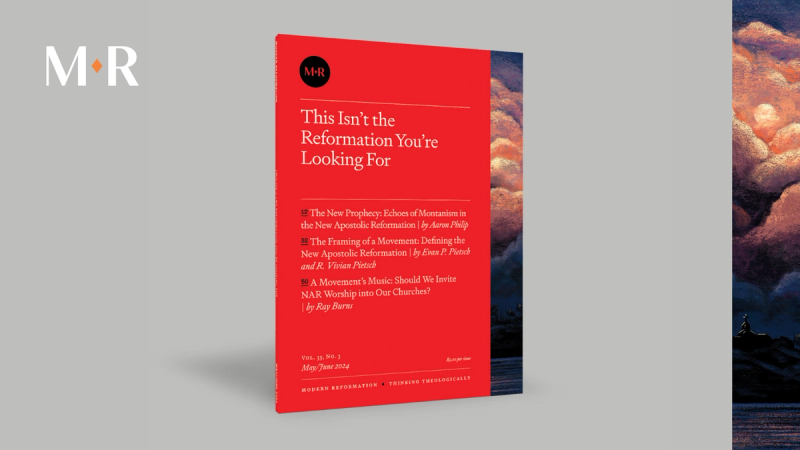We simply cannot know which direction we should go unless we have some idea of where we’re going. For more than thirty years, by the grace of God, this magazine has been charting our course toward one destination summed up in our oft-used motto: For a modern reformation.
One way to keep focused on our destination is by asking: What would a modern reformation look like? Here are five ingredients we believe are essential to any faithful answer.
- A return to God’s word as the only sufficient and unfailing rule of faith and life. A modern reformation must be characterized by an intelligent, believing, prayerful return to the wisdom and power of God’s Spirit speaking in the Scriptures.
- A recovery of the doctrines of grace, especially justification through faith alone in Christ alone by grace alone. The doctrines of grace not only exalt the good news of Jesus Christ to its proper place of prominence, but they also drive us back to him as the only foundation of our assurance, holiness, maturity, and fruitfulness—to the glory of God alone.
- A commitment to catholicity and confessionalism. The Protestant Reformers didn’t abandon the catholic (“universal”) faith or the church; they called both Rome and the radicals to true catholicity. This doesn’t mean that we who are committed to reformation will all agree, but it does mean that our unity isn’t found in personalities, causes, or cultures but in communities of shared confession: “One Lord, one faith, one baptism” (Eph. 4:5).
- A renewal of biblical worship and discipleship. Worship that is truly reformed emphasizes the centrality of word and sacraments as God’s ordinary means to enliven and equip disciples of Jesus. This leads to mature disciples who know what they believe and why they believe it. And reformation leads to a renewal of the doctrine of vocation, in which not just church ministry but every legitimate kind of work or social function is a distinct calling from God through which he both provides for us and blesses our neighbor.
- An embrace of the church’s global character and mission. The Reformers weren’t pursuing worldly success or narrow personal, ethnic, or national interests. They were pursuing Christ’s mission of building his church, a heavenly temple lovingly crafted of living stones gathered from every language and tribe (1 Pet. 2:5; Rev. 7:9).
This is a beautiful and exciting vision of reformation, and Lord, may it be so!
Another way to keep focused on our destination is to ask the opposite question: What wouldn’t a modern reformation look like? Sadly, the subject of our current issue—the New Apostolic Reformation movement—is a fitting example of what a modern reformation is not. Yet it has been, by any human measure, deeply successful. This should move us to grieve and pray for a true modern reformation. But it should also remind us that we can’t focus so much on the need of reform in Christ’s church that we lose sight of the Christ who promises to uphold his church. “He who calls you is faithful,” and in his way and according to his timing, “he will surely do it” (1 Thess. 5:24).









